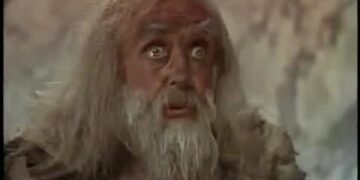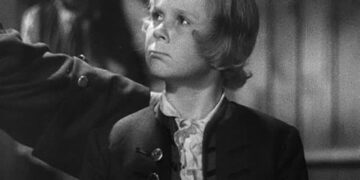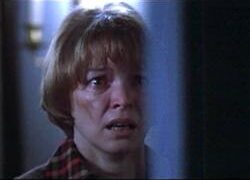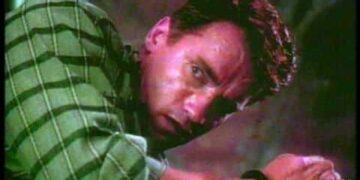From the insightful mind of the prolific author Jun’ichirÅ Tanizaki, ‘The Key’ is an intricate piece of literature, later adapted into a film, that has garnered significant attention and acclaim.
This piece is a deep-dive into the world of ‘The Key,’ unlocking its many layers and nuances.
It is a comprehensive guide for enthusiasts, scholars, and newbies alike, offering a detailed book summary, movie analysis, character exploration, and much more.
This literary masterpiece, with its intricate plot and complex characters, has captivated audiences worldwide since its publication.
The subsequent film adaptation further broadened its appeal, bringing the story to life on the silver screen.
This article will serve as your guide to understanding and appreciating this multifaceted work.
Whether you’re a seasoned fan looking to delve deeper into the story you love or a newcomer intrigued by the tale, this exploration of ‘The Key’ will provide you with an in-depth understanding of the work.
From the mind of Jun’ichirÅ Tanizaki to the hands of director Jefery Levy, this is a comprehensive look at ‘The Key.’
Biography and Works of Jun’ichirÅ Tanizaki
Jun’ichirÅ Tanizaki was a Japanese author who made significant contributions to modern Japanese literature.
Born in 1886, he spent his life crafting narratives that played with themes of love, beauty, and the human psyche.
His works, known for their stylistic elegance and psychological depth, have left an indelible mark on literature.
‘The Key’ is one of Tanizaki’s most well-known works, showcasing his ability to delve into the human psyche.
However, his literary repertoire extends far beyond this single novel.
Tanizaki authored numerous novels, novellas, and short stories, each unique in its exploration of human nature and society.
Tanizaki passed away in 1965, but he left behind a rich legacy of literature that continues to captivate audiences worldwide.
His works, including ‘The Key,’ remain influential, shaping discussions about love, beauty, and the complexities of the human experience.
Comprehensive Book Summary of ‘The Key’
‘The Key’ is a gripping novel that takes readers on a journey through the tumultuous relationship of its main characters.
The story is told through diary entries, providing a unique and intimate perspective on the characters’ thoughts, feelings, and experiences.
It’s a tale of love, lust, and power dynamics, told in a way that is utterly captivating.
The novel begins with the introduction of the central characters: a middle-aged professor and his younger wife.
Their relationship is strained, marked by a lack of communication and emotional distance.
However, as the novel progresses, their dynamic shifts dramatically, leading to a series of unexpected and thrilling events.
The climax of the novel is both shocking and thought-provoking, leaving readers to reflect on the complexities of human relationships and the power of desire.
By the end of ‘The Key,’ readers are left with a deeper understanding of human nature, the dynamics of relationships, and the profound impact of our desires and actions.
Detailed Movie Analysis of ‘The Key’
The film adaptation of ‘The Key,’ directed by Jefery Levy, does an incredible job of bringing Tanizaki’s novel to life.
It maintains the original work’s core themes, while also introducing cinematic elements that add depth and visual appeal.
The clever use of camera angles, lighting, and sound design creates a captivating and immersive viewing experience.
The performances by the lead actors are noteworthy, capturing the complexities of their characters with remarkable authenticity.
The director’s decision to retain the diary-entry narrative structure adds an intriguing layer to the film, allowing viewers to gain a deeper understanding of the characters’ inner thoughts and emotions.
The film’s ending, much like the novel’s, is both shocking and thought-provoking. It leaves viewers to reflect on the complexities of human relationships and the profound impact of our desires and actions.
Overall, the movie adaptation of ‘The Key’ is a compelling cinematic experience that does justice to the original novel.
Who’s Who in ‘The Key’: Character Analysis
Understanding the characters in ‘The Key’ is crucial to fully appreciating the story. Each character is complex and multifaceted, adding depth to the narrative.
The main characters, a middle-aged professor and his younger wife, are particularly intriguing. Their relationship and individual personalities form the crux of the story.
The professor, a man struggling with his diminishing virility, is a complex character whose actions and thoughts reveal a lot about his inner turmoil.
His wife, on the other hand, is a woman trapped in a loveless marriage, yearning for liberation and fulfillment.
Other characters in the story also play critical roles, adding layers to the narrative.
These include the couple’s daughter, who is oblivious to her parents’ struggles, and the young man who becomes entangled in their lives.
Each character in ‘The Key’ contributes to the story’s progression and its exploration of human nature and relationships.
When and Where: Exploring the Timeline and Film Locations of ‘The Key’
The timeline and setting of ‘The Key’ play a pivotal role in the story. The narrative unfolds over a year, detailing the transformation of the main characters’ relationship.
The diary entries that compose the story give readers and viewers a detailed account of the events as they transpire, adding to the narrative’s intensity.
The film adaptation of ‘The Key’ was shot in various locations, each adding a unique aesthetic to the movie.
From the professor’s traditional Japanese house to the modern cityscapes, each location contributes to setting the mood and tone of the story.
The choice of locations not only reflects the characters’ lives but also enhances the overall visual appeal of the film.
Notable Quotes from ‘The Key’
‘The Key’ is laden with profound quotes that offer insight into the characters’ minds and the overarching themes of the story.
These quotes not only enrich the narrative but also leave readers and viewers with food for thought.
One notable quote from the book reads, “We are, each of us, our own prisoner. We are locked up in our own story.” This quote eloquently encapsulates the theme of personal struggle and the human condition, which are central to the story.
Another memorable quote from the film adaptation is, “In the realm of love, desire is king.” This line, uttered by the professor, reflects the story’s exploration of desire and its impact on relationships.
These quotes, along with many others, add depth to ‘The Key,’ making it a thought-provoking and enriching experience for readers and viewers alike.
Soundtrack by Jamey Scott: A Closer Look
Music plays a significant role in the film adaptation of ‘The Key,’ enhancing the viewing experience.
The soundtrack, composed by Jamey Scott, perfectly complements the narrative, adding depth and emotion to the story.
Scott’s compositions range from hauntingly beautiful melodies to intense, dramatic scores.
Each piece is carefully crafted to reflect the mood of the scene, enhancing the emotions conveyed by the characters and the narrative.
For example, during the movie’s climax, the music builds in intensity, mirroring the characters’ escalating tension and conflict.
On the other hand, during quieter, more introspective moments, the soundtrack is gentle and melancholic, reflecting the characters’ inner turmoil.
Scott’s soundtrack not only enhances the film’s emotional impact but also adds another layer of depth to the story, making ‘The Key’ a truly immersive cinematic experience.
Curiosities and Trivia about ‘The Key’
‘The Key’ is a work filled with interesting tidbits and trivia that add to its intrigue.
For instance, did you know that the novel’s unique diary-entry narrative structure was inspired by Tanizaki’s fascination with Western literature? Or that the film adaptation was initially met with controversy due to its explicit content?
One interesting fact about the movie is that it was shot entirely on location in Japan, despite being directed by an American filmmaker. This decision was made to stay true to the novel’s setting and to capture the authentic essence of the story.
Another curiosity about ‘The Key’ is the symbolic use of the key itself. In the story, the key represents power, control, and secrets, all themes that are central to the narrative.
Whether you’re a seasoned fan or a newcomer to ‘The Key,’ these fun facts and trivia make the experience of exploring this work even more enriching.
Dressing the Part: Tips for Cosplaying ‘The Key’ Characters
For fans looking to bring the characters of ‘The Key’ to life, cosplaying can be a fun and rewarding experience. Here are some tips to help you get started.
Firstly, it’s important to understand the characters and their personalities.
The professor, for instance, is a traditional man, so his attire would reflect this. Consider wearing a classic suit or a traditional Japanese kimono to portray this character.
On the other hand, the professor’s wife is a more modern character. Her outfits in the movie are stylish and contemporary, reflecting her desire for liberation and change.
To cosplay this character, consider wearing modern and chic outfits, similar to those worn by the character in the film.
Remember, cosplay is not just about the outfits. It’s also about embodying the characters and their personalities.
So, do your research, understand the characters, and most importantly, have fun!
Understanding the Ending of ‘The Key’
The ending of ‘The Key’ is one of the most talked-about aspects of the story. It’s shocking, thought-provoking, and open to interpretation, leaving readers and viewers with plenty to ponder.
Without giving too much away, the ending involves a dramatic turn of events that changes the dynamics between the main characters.
It leaves the audience questioning the nature of desire, power, and control, and the lengths people will go to fulfill their desires.
The ending also ties in with the novel’s overarching themes of personal struggle and the human condition, leaving a lasting impression on readers and viewers.
Whether you find the ending satisfying or unsettling, it’s sure to provoke thought and discussion.
Exploring the Possibility of a Remake, Sequel, or Spin-off
Given the popularity and intrigue surrounding ‘The Key,’ it’s natural to wonder if there could be a remake, sequel, or spin-off in the future.
While there has been no official announcement to this effect, the rich narrative and complex characters certainly provide plenty of material for further exploration.
A remake could introduce ‘The Key’ to a new generation of readers and viewers, while a sequel or spin-off could delve deeper into the characters’ lives and explore the aftermath of the story’s dramatic ending.
While the possibility of a remake, sequel, or spin-off is purely speculative at this point, fans of ‘The Key’ can continue to explore and appreciate the original novel and film, which offer plenty of depth and intrigue in their own right.
Other Media by Jefery Levy: A Brief Overview
Jefery Levy, the director of ‘The Key’ film adaptation, is a talented filmmaker known for his unique storytelling approach.
His body of work includes several films and TV shows, each showcasing his knack for bringing complex narratives to life on screen.
In addition to ‘The Key,’ Levy has directed films like ‘Inside Monkey Zetterland’ and ‘Me,’ both of which showcase his ability to craft engaging narratives.
He’s also worked on popular TV shows such as ‘CSI: Crime Scene Investigation,’ proving his versatility as a filmmaker.
Levy’s work is characterized by his innovative use of visual and auditory techniques to enhance storytelling.
His style is evident in ‘The Key,’ where he skillfully adapts Tanizaki’s complex novel into an engaging and thought-provoking film.
Similar Media to ‘The Key’: Recommendations for Further Exploration
If you enjoyed ‘The Key,’ you might be interested in exploring similar works.
Here are a few recommendations:
- ‘Naomi’ by Jun’ichirÅ Tanizaki: This novel explores similar themes of desire, power dynamics, and societal norms, making it a great choice for fans of ‘The Key.’
- ‘Rashomon’ by Akira Kurosawa: This film, like ‘The Key,’ delves into the complexities of human nature and offers a unique narrative structure.
- ‘Woman in the Dunes’ by KÅbÅ Abe: This novel, later adapted into a film, offers a thought-provoking exploration of human desires, much like ‘The Key.’
These works, while unique in their own right, offer similar themes and narrative styles to ‘The Key,’ making them excellent choices for further exploration.
A Deep Dive into Other Works by Jun’ichirÅ Tanizaki
Beyond ‘The Key,’ Jun’ichirÅ Tanizaki’s literary repertoire offers a wealth of works for readers to explore.
His novels, novellas, and short stories each offer unique narratives that delve into human nature and societal norms.
For instance, ‘Naomi,’ one of Tanizaki’s most renowned works, explores themes of obsession, desire, and the East-West cultural divide.
Similarly, ‘The Makioka Sisters’ offers a compelling narrative that delves into the lives of four sisters navigating societal expectations in pre-war Japan.
Each of Tanizaki’s works offers a unique narrative, rich with complex characters and thought-provoking themes.
Whether you’re a fan of ‘The Key’ or a newcomer to Tanizaki’s works, there is plenty to explore and appreciate in his literary repertoire.
Discussion: Book Club Questions for ‘The Key’
‘The Key’ is a thought-provoking work that offers plenty of material for discussion.
Whether you’re part of a book club or simply wish to delve deeper into the novel, here are some questions to consider:
- How does the diary-entry narrative structure enhance the storytelling in ‘The Key’?
- How do the main characters evolve throughout the story?
- How do the themes of desire and power dynamics play out in the narrative?
- How does the setting and timeline influence the story?
- What are your thoughts on the ending of ‘The Key’?
These questions are designed to provoke thought and discussion, helping readers to gain a deeper understanding and appreciation of ‘The Key.’
Exploring ‘The Key’ in Video Games: An Untapped Medium
While ‘The Key’ has been successfully adapted into a film, it’s interesting to consider how it might translate into a video game.
The intricate plot and complex characters could certainly lend themselves to an engaging and immersive gaming experience.
A video game adaptation could allow players to step into the shoes of the main characters, making decisions that influence the narrative.
It could also offer a unique perspective on the story, allowing players to explore the setting and interact with the characters in new ways.
While a video game adaptation of ‘The Key’ remains purely speculative, it’s an intriguing possibility that could offer fans a new way to experience and engage with this captivating story.
Travel Guide: Visiting the Real-world Locations of ‘The Key’
For fans of ‘The Key,’ visiting the real-world locations used in the film can be a thrilling experience.
From the traditional Japanese house where the main characters reside to the bustling cityscapes, each location offers a glimpse into the world of ‘The Key.’
Before planning your trip, it’s important to research and understand the cultural significance of these locations.
Also, remember to respect local customs and regulations while visiting.
Whether you’re a die-hard fan of ‘The Key’ or simply a traveler seeking new experiences, visiting the real-world locations of ‘The Key’ can offer a unique and enriching experience.
Conclusion: The Lasting Impact of ‘The Key’ by Jun’ichirÅ Tanizaki
From its captivating narrative to its complex characters, ‘The Key’ by Jun’ichirÅ Tanizaki is a masterpiece that continues to captivate audiences worldwide.
Its exploration of human nature, relationships, and societal norms has left a lasting impact on literature and cinema.
Whether you’re a seasoned fan or a newcomer, ‘The Key’ offers a wealth of depth and intrigue to explore.
From its comprehensive book summary to its detailed movie analysis, character exploration, and much more, this guide provides a comprehensive look at this multifaceted work.
As we conclude this exploration of ‘The Key,’ we invite you to continue delving into this captivating story.
Whether through further reading, viewing, or even cosplay, every interaction with ‘The Key’ is sure to offer new insights and deepen your appreciation of this timeless masterpiece.













